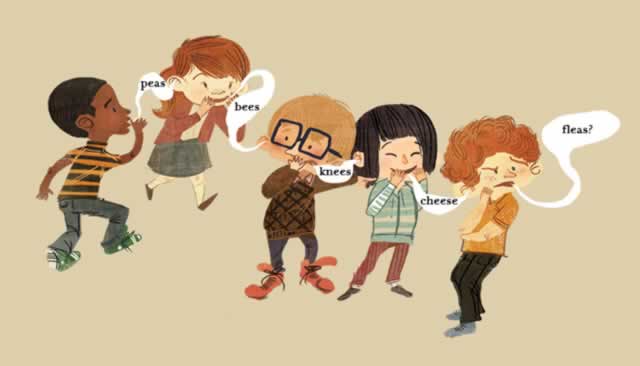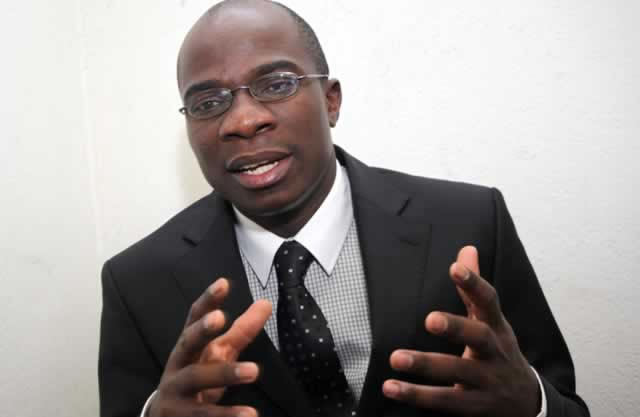Broken Telephone, unreliable narrators

Blessing Musariri Shelling the Nuts
Signs that you have come across an unreliable narrator or an outright liar, is when you find that things they have said are contradictory or there are gaps in their memory, or they have told a different version of the story to someone else.
ONE of my favourite games even up to this day is Broken Telephone.
I love it because the difference in what was originally said and what comes out at the end of the experiment usually makes for a good laugh. This is okay when it is a game or it is being used to demonstrate issues that arise in communication.
It’s not alright when it turns out to be what is happening around you in real life.
For those who are unfamiliar with the game, you get about five or six people to stand in a line.
You write a sentence on a piece of paper and hand it to the first person in the line to read it.
In this case, let’s say the text reads, “Tomorrow we are going to make it really big.”
Number one in line turns to number two and whispers the sentence in their ear. Number two in turn whispers to number three what they heard and so on until number last hears it. Number last then has the unenviable task of repeating aloud what they think was said originally by number one. Chances are they will say something like, “Tomorrow we are going to market a real live pig,” and everyone will laugh. This will have demonstrated how things are lost in the retelling.
It’s fun when it’s a game but when it’s real life it’s most annoying. I once told a friend that I was very unimpressed by the actions of a mutual friend and imagine my surprise when one day she said oh so and so had a party but I told them not to bother invite you because you said you never wanted to see them again.
I had definitely said no such thing and I was now incredibly annoyed by the liberty taken by this friend, not only of communicating my feelings or alleged feelings, but doing it in such an outrageously slanderous manner.
Yes, that was slander. And for those who are not in the know, slander “involves the oral “publication” of a defamatory remark that is heard by another, which injures the subject’s reputation or character”, as opposed to libel, which is written.
Needless to say I came across to our mutual friend as being an unreasonable and unpleasant and that was the end of our association.
To begin to try and ameliorate the situation ends up almost adding insult to injury. An injury that need not have happened. The trust is gone and subsequently so is the love. Things will never be the same.
How does such a thing happen? Ask yourself first, are you listening or simply waiting for a turn to speak? With broken telephone you know that you are going to be required to pass on the message you heard, so half your mind is listening and the other is preparing to pass on the message. Effective listening requires a person’s full attention and allowing oneself to not be at the centre of the action. That is to say, if you are not thinking about yourself and your part in the conversation you give someone else a chance to be the centre of your attention and you listen without judgement or opinion.
Naturally, this goes against the ego. Ego is, the “self”, The “I”, the most important person in your world, (usually). This is your central government, your admin department, your central processing unit.
Listening without judgment and opinion goes against the kind of person you are, if you are the type of person who loves to pass on juicy stories or if you are the type of person who knows everything, then you are listening to what someone is telling you with a mind to how sensational it’s going to be or how credible (according to your illustrious powers of reasoning) its going to be when you repeat it.
Already you have tainted the spirit of what is being said and instead of admitting that you’re a lousy listener you just fill in the gaps with your preconceived notions and prejudices.
Also what people tend to do is to form an opinion about what they have heard and then speak from that place instead of being objective and truthful. Their opinion becomes their truth and in turn the basis for the “truth” formed by the next person in the chain.
Some people purposefully add a little seasoning to make the retelling more impactful or in an effort to nudge the listener onto their side of thinking so that they feel vindicated in the position they have taken.
These types of people, in literature, are known as unreliable narrators. If you are the listener in this case and your immediate reaction to a story told by an unreliable narrator is to question your own knowledge of the person/facts under discussion then you need to know that what you have been told is likely only partly true and you need to invoke the, “Trust but verify” protocol.
Often-times, unreliable narration is not overtly malicious, but simply a result of a person’s inflated sense of self — I am so interesting, the stories I tell are fascinating, the person who told me this story did not know what lay under the surface and, I, with my super-powers of deduction, have extracted the truth of the matter and here it is. Or it is a simpler conceit — I can tell a better story ( never mind the truth), or I couldn’t bear to have to listen closely as it was not that interesting but I have the gist of it and have the capability to tell the story without getting any part of it wrong.
Signs that you have come across an unreliable narrator or an outright liar, is when you find that things they have said are contradictory or there are gaps in their memory, or they have told a different version of the story to someone else. And if you have passed on the story to someone one else, what does this then make you and what does it say about what we tell each other on a daily basis? Some people are simply distracted and as a result never have the right of any situation.
I had a house-mate a few years back who would swear by something that would turn out to be 100 percent not true. We would have epic arguments about things and I learned to simply verify everything — skip the trust bit.
I even developed a radar for those moments. She was a hardworking and generally positive person, but more often than not she was mistaken about everything she told me. She would passionately defend her pronouncements and I would pull back in shock and horror. This eventually led me to realise that there was more peace to be had in understanding that her reality needn’t be mine. If I disagreed with her version of events, we would resort to Google — our mediator of choice, or I would have to prove my case or vice versa and only then would we agree.
In our minds we existed on different straits of knowledge and understanding, she was somewhat naive and I was cynical and questioning.
I wondered if it made a difference in her life to learn of some of the things in which she had been mistaken, after all, she had operated all her life up to that point believing what she believed. Would knowing differently impact her life positively or would it henceforth cause her complications she could have done without had she known nothing about it?
It’s possible she chose to continue in her bliss, which leads one to question what difference a shared reality truly makes. Maybe the person at the end of the broken telephone is happier and better off for knowing that, “Tomorrow we are going to market a real live pig”, rather than, “Tomorrow we are going to make it really big,” because, maybe we’re not.







Comments